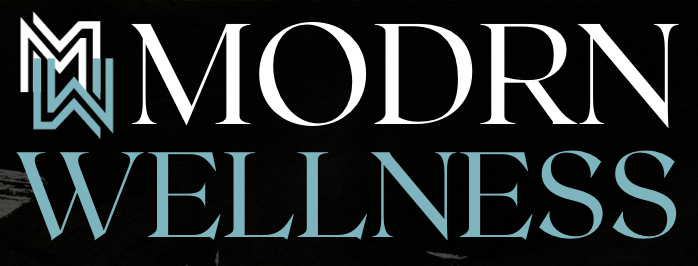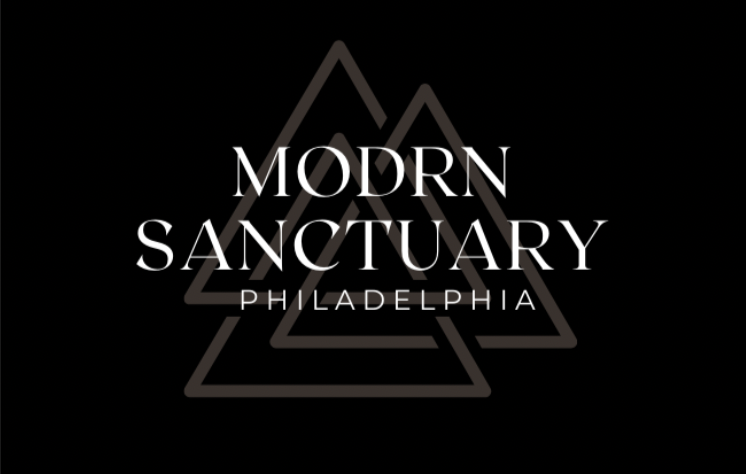
Healing from Within
Psychotherapy
Individual and Couples Therapy
Psychotherapy
Holistic Healing to Move You Forward.
Holistic psychotherapy is an integrative approach to mental health and well-being that considers the interconnectedness of the mind, body, and spirit. It goes beyond traditional therapeutic methods by recognizing that individuals are complex beings influenced by various factors such as emotions, thoughts, physical health, and spirituality. The goal of holistic psychotherapy is to address not only the symptoms of psychological distress but also the underlying causes, fostering a more comprehensive and sustainable healing process.
In holistic psychotherapy, therapists work collaboratively with clients to explore and understand the multiple dimensions of their lives. This may involve incorporating a diverse range of therapeutic techniques, including traditional talk therapy, mindfulness practices, cognitive-behavioral interventions, body-centered approaches, and other modalities that promote holistic well-being.
The holistic perspective emphasizes the importance of treating the whole person rather than isolating specific issues or symptoms. By recognizing and addressing the interconnected aspects of an individual's life, holistic psychotherapy aims to promote self-awareness, personal growth, and a sense of balance and harmony.
Overall, holistic psychotherapy encourages individuals to take an active role in their healing journey, exploring the various dimensions of their lives to achieve a more profound understanding of themselves and to foster positive and lasting changes.
Currently, all psychotherapy services are offered virtually to our clients. Corrine and Mandy are both out of network practitioners. However, both therapists will provide clients with an end of month super bill which can be independently submitted to insurance for reimbursement pending your insurance requirements.
INDIVIDUAL THERAPY
Individual holistic psychotherapy is a personalized mental health approach integrating mind, body, and spirit. Collaborating with a trained therapist, individuals explore and address both symptoms and underlying causes of distress. Incorporating modalities like talk therapy and mindfulness, the focus is on fostering self-awareness and achieving balance. The goal is to empower individuals for transformative personal growth and resilience in a comprehensive and interconnected manner.
Each therapist is trained to look at the individual in a holistic way, leading to increased success rates and satisfaction.
Work With:
Meet Our Therapists
Finding the right help is key when working to change your life and discover your best self.
CORRINE STRUBEL
Psychotherapist
MANDY GRAHAM, LPC
Licensed Psychotherapist and Coach
WHAT TO EXPECT IN YOUR SESSIONS
Holistic Assessment:
The therapist may conduct a comprehensive assessment of your physical, emotional, mental, and spiritual well-being. This could involve discussing your personal history, current challenges, and goals for therapy.
Mind-Body Connection:
The therapist may explore the connection between your thoughts, emotions, and physical sensations. Mindfulness techniques, meditation, or breathwork may be incorporated to help you become more aware of your body's signals.
Exploration of Emotions:
Emotions are often central in holistic psychotherapy. The therapist may encourage you to express and explore your emotions in a safe and supportive environment. This might involve discussing past experiences, current concerns, and future aspirations.
Cognitive and Behavioral Techniques:
Traditional therapeutic approaches, such as cognitive-behavioral techniques, may be integrated to address specific thought patterns and behaviors that contribute to your challenges.
Holistic Lifestyle Recommendations:
Therapists may provide guidance on lifestyle factors such as nutrition, exercise, and sleep that can contribute to overall well-being.
Spirituality and Existential Exploration:
Holistic psychotherapy often considers spiritual and existential aspects of life. This doesn't necessarily mean a focus on religious beliefs but may involve exploring your sense of purpose, meaning, and connection to something greater than yourself.
Creative Expression:
Some therapists incorporate creative modalities like art, music, or movement to help you express yourself and tap into deeper levels of understanding.
Mindfulness and Relaxation:
Techniques to promote relaxation, stress reduction, and mindfulness may be introduced. These can include guided imagery, meditation, or other practices aimed at enhancing your awareness of the present moment.
Goal Setting and Action Plans:
Holistic psychotherapy typically involves setting goals for personal growth and development. The therapist may work with you to create a plan of action and support you in making positive changes in your life.
Building a Therapeutic Relationship:
A strong therapeutic alliance is crucial in holistic psychotherapy. The therapist will work to create a safe, non-judgmental space where you feel comfortable exploring your thoughts and feelings.
You have questions and we have the answers. Frequently asked questions for all your coaching curiosities.
Frequently Asked Questions
-
Corrine and Laura are both out of network practitioners. However, both therapists will provide clients with an end of month super bill which can be independently submitted to insurance for reimbursement pending your insurance requirements.
-
-
Coaching and therapy are distinct practices, each with its own focus, goals, and methodologies. Here are some key differences between coaching and therapy:
Focus on the Present and Future vs. Past:
Coaching: Generally, coaching is future-oriented and goal-focused. Coaches work with clients to identify and achieve specific objectives, often related to personal or professional development.
Therapy: Therapy often involves exploring and understanding the impact of past experiences on current thoughts, feelings, and behaviors. Therapists may delve into unresolved issues and work towards emotional healing.
Goal Orientation:
Coaching: Coaches typically help clients set and achieve specific, measurable goals. This could include career objectives, improved relationships, or personal development targets.
Therapy: While therapy also involves goal setting, the goals may be broader and can include emotional healing, self-discovery, and improved overall well-being.
Nature of Issues Addressed:
Coaching: Coaching is often used for personal and professional development, skill enhancement, and goal achievement. It is well-suited for individuals seeking support in specific areas of their lives, such as career transitions or performance improvement.
Therapy: Therapy is commonly utilized for addressing mental health concerns, emotional difficulties, and issues related to relationships, trauma, or personal struggles.
Regulation and Credentials:
Coaching: The coaching industry is less regulated compared to therapy. Coaches may come from diverse professional backgrounds, and there is no standardized licensure process.
Therapy: Therapists, particularly clinical psychologists, counselors, social workers, and psychiatrists, typically undergo specific education, training, and licensure processes. They adhere to ethical guidelines and legal standards.
Duration and Intensity:
Coaching: Coaching relationships are often shorter-term and more focused, with sessions geared towards achieving specific goals. The frequency of coaching sessions can vary.
Therapy: Therapy may be shorter-term or long-term, depending on the nature and complexity of the issues. Therapy sessions can be more frequent, especially during the initial phases.
Holistic vs. Specialized:
Coaching: Coaching often takes a holistic approach, addressing various aspects of a person's life. Coaches may work on enhancing overall life satisfaction and balance.
Therapy: Therapy may be more specialized, focusing on specific mental health issues or emotional concerns.
It's worth noting that there can be some overlap between coaching and therapy, and hybrid approaches exist. Additionally, the effectiveness of either approach depends on the individual's needs and preferences. Some individuals may benefit from a combination of coaching and therapy at different stages of their personal or professional journey.
-
Yes, it is possible to engage in therapy and coaching simultaneously, and this approach is sometimes referred to as "integrated therapy and coaching" or "therapy-coaching hybrid." Combining therapy and coaching can provide a comprehensive and holistic approach to personal development and well-being. Here are some considerations:
Distinct Roles: Clarify the roles of your therapist and coach. While there can be some overlap in the issues addressed, therapy typically focuses on emotional and psychological well-being, while coaching tends to be more goal-oriented and future-focused. Having clear communication with both professionals about your goals and expectations is crucial.
Collaboration: If you choose to work with both a therapist and a coach, it's important that they are willing to collaborate. This collaboration can involve sharing information about your progress, goals, and the strategies being employed in each domain to ensure a cohesive and supportive approach.
Timing and Scheduling: Consider the practical aspects of scheduling sessions with both your therapist and coach. It may be helpful to coordinate the timing of sessions to avoid conflicts and to allow for a smooth integration of insights and strategies.
Shared Goals: Ensure that your therapist and coach are aware of and supportive of your decision to engage in both modalities. It's important that they align with your goals and contribute positively to your overall well-being.
Integration of Insights: The insights gained in therapy can complement the goal-setting and action-oriented focus of coaching, and vice versa. Integrating emotional awareness and healing from therapy with the practical strategies and accountability from coaching can create a powerful synergy.
Open Communication: Maintain open communication with both professionals. If any conflicts or concerns arise, address them openly and collaboratively. This ensures that both therapy and coaching contribute positively to your growth and development.
Evaluate Progress: Periodically assess your progress in both therapy and coaching. Evaluate whether the combination is meeting your needs and if adjustments are necessary. This self-reflection can guide the ongoing integration of these two modalities.
Modrn Sanctuary Philadephia, LLC is a wellness center that provides certain services including use of the crystal bed, massage, facials and infrared sauna. Modrn Sanctuary also licenses use of space to practitioners to provide their own independent services. These practitioners are independent contractors and not agents or employees of Modrn Sanctuary. Modrn Sanctuary is not liable for the acts, errors, omissions, representations, harm and/or damages caused by Practitioner or in connection with any services performed by the practitioner. By licensing space to the practitioners within its wellness center, Modrn Sanctuary is in no way endorsing, recommending and/or sponsoring the practitioners or any of the practitioners' services.





